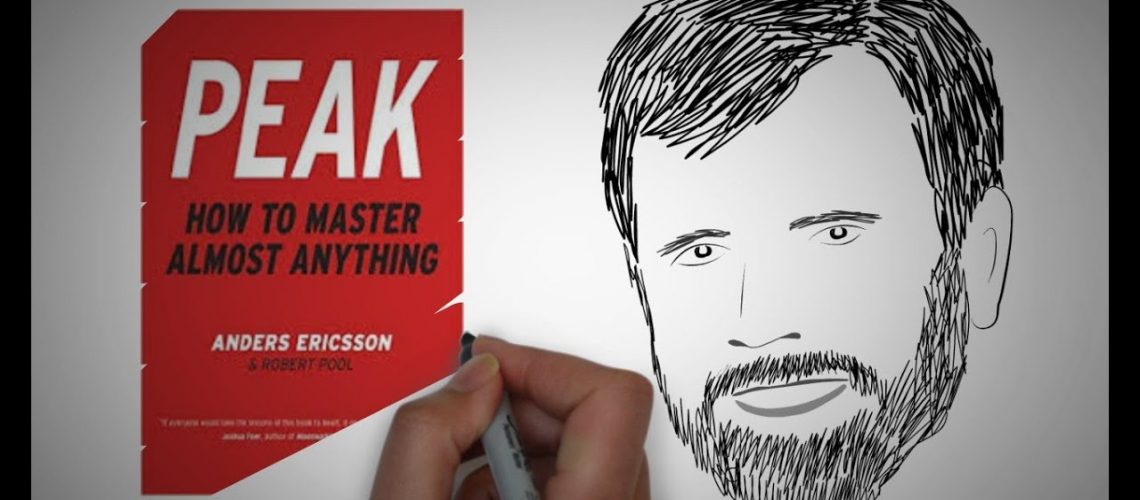The right sort of practice carried out over a sufficient period of time leads to improvement. Nothing else will.
We live in a world full of people with extraordinary abilities. We are dramatically better at just about everything than we were just a generation ago.
We assume, though, that these peak performers are the lucky ones, the ones with a gift. That’s only partly true. The fact is we are all lucky. We all have that gift. As Ericsson’s whole career has shown, with the proper practice, we are all capable of extraordinary feats.
At a deeper level, peak performers all use variations on a single fundamental approach to learning, “deliberate practice”: a simple, yet powerful system for enhancing learning. This approach to expertise has the potential to revolutionize how we think about every sort of education and training. We are not limited by an endowment of natural talent. We create our own limits. Ericsson’s revolutionary methods will show you how to master almost anything.
Key Takeaways
Rule: 10,000 hours to mastery. This isn’t a rule at all.Simply doing something for hours and hours is no guarantee that you’ll improve. Those that believe that their skills are good enough, and choose to go on autopilot, are actually worse in the absence of deliberate practice.
Deliberate practice is necessary to push yourself out of your comfort zone, and force yourself to come up with, mental representations.
Mental representations What sets expert performers apart from everyone else, is the quality and the quantity of their mental representations. Through years of practice they develop highly complex and sophisticated representations of the various situations they are likely to encounter in their fields.
Masters have achieved mastery because they’ve come up with effective mental representations that allow them to recreate entire experiences in their mind, and accurately predict long sequences of events in their domain and condense large amounts of information into seemingly simple mental representations. These mental representations take on the form of words, images, and feelings.
“Mental representations explain the difference between novices and experts.”
Core Components of ‘Purposeful Practice’
1. Specific Goal short-term targets that are extremely obvious.
2. Intense Focus all you would focus on for a certain period of time.
3. Immediate Feedback immediate and easy to understand.
4. Frequent Discomfort constantly being pushed outside of your comfort zone by operating just on the edge of your abilities. Frequently making mistakes.
The structured approach of purposeful practice forces you to come up with creative mental representations. The intense focus and the repeated discomfort basically conditions the mind to come up with a creative insight.
Purposeful practice methods + expert coaching = Deliberate Practice
“The right sort of practice carried out over a sufficient period of time leads to improvement. Nothing else will.”


